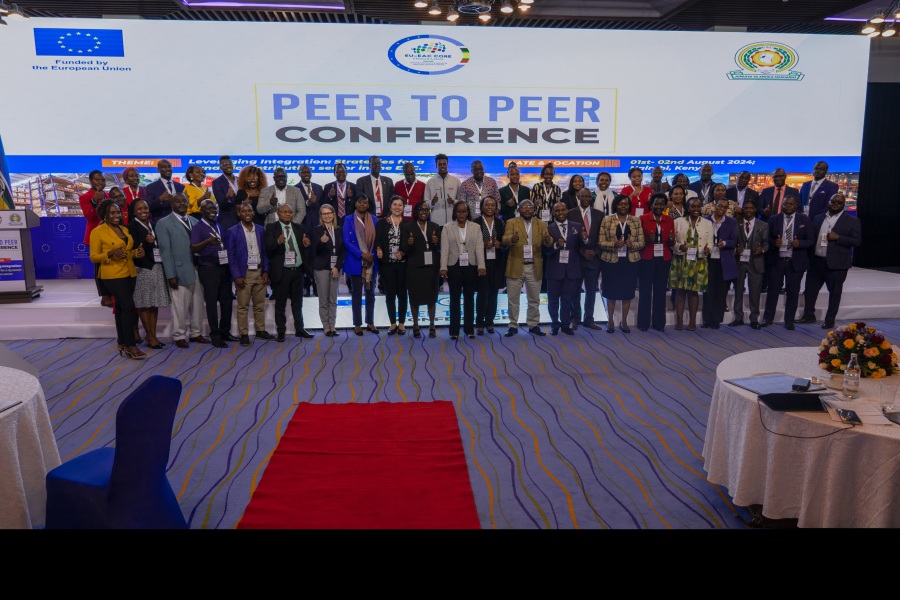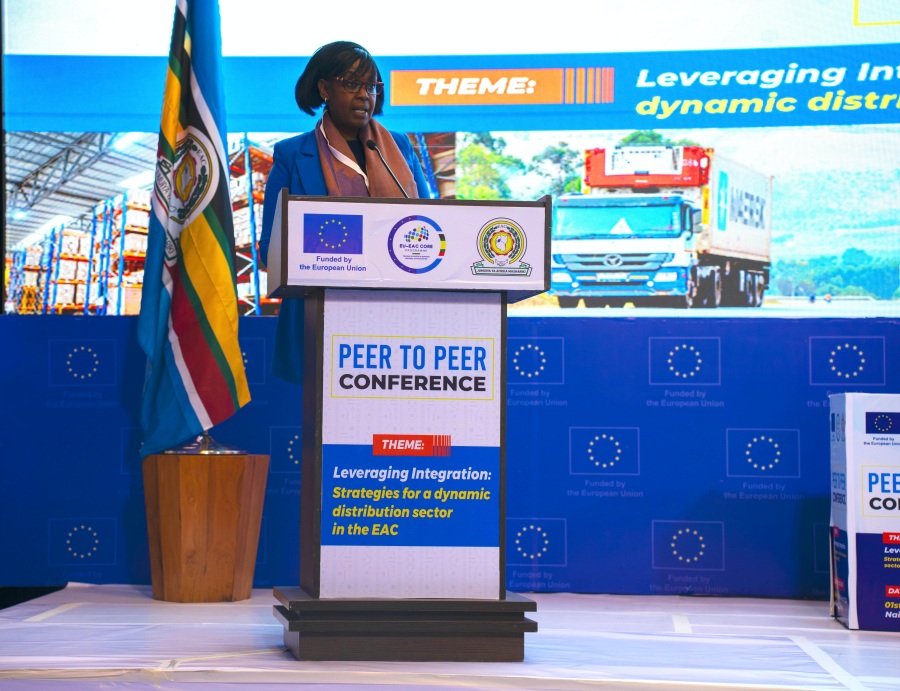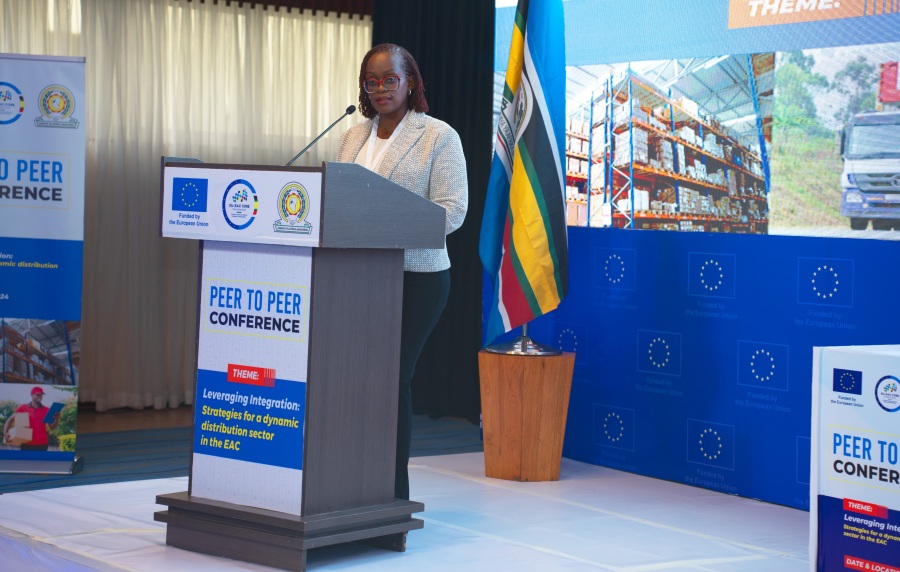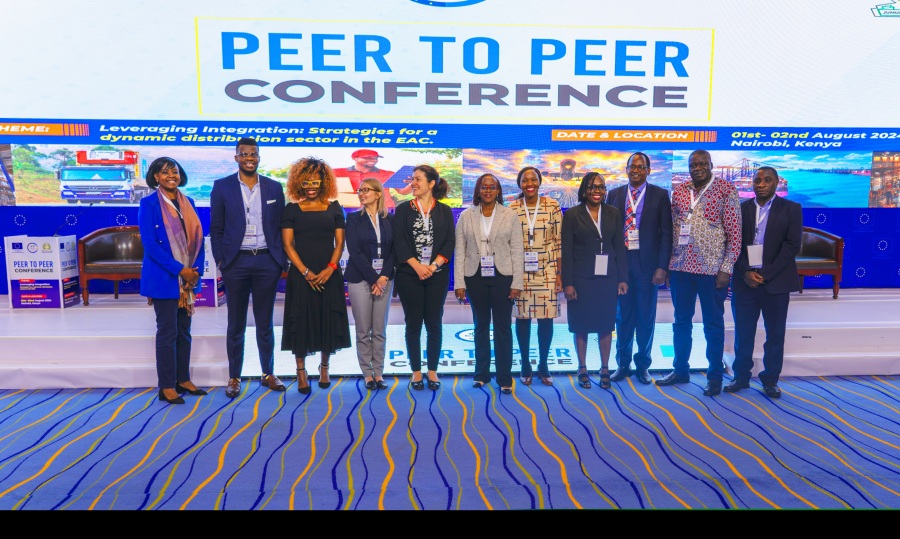
East African Distribution Stakeholders convene in Nairobi to address sector challenges
East African Community Headquarters, Arusha, Tanzania, 2nd August, 2024: Stakeholders in the distribution sector from the East African region have convened in Nairobi, Kenya, to address challenges facing the sector and develop a strategic action plan to overcome barriers affecting distribution in the region.
The participants include stakeholders from the region’s wholesale trade services, retailers and franchising sectors; representing public and private organizations, business associations, distribution firms, and e-commerce platforms.
The forum marks the inaugural EAC Peer-to-Peer Learning Conference, which focuses on tackling key obstacles in the distribution sector, with particular attention on regulatory frameworks and growth strategies.
The Conference, organized under the EU-EAC CORE program, reviewed a diagnostic study on the region revealing that restrictive investment laws are impacting the entry and operations of wholesale and retail firms across EAC Partner States. The study identified major challenges ailing the sector such as; burdensome administrative requirements, weak links with local suppliers, high investor exit rates in the retail sector and insufficient industry skills.
The peer-to-peer learning approach aims to facilitate knowledge exchange between countries that have implemented successful reforms and foreign entities with advanced distribution practices, emphasizing inventory management, skill enhancement, and integration with local suppliers.
Delivering the keynote address, Ms. Elizabeth Miguda, Deputy Director and Head of Regional Trade at Kenya’s State Department of Trade highlighted that the liberalization of this sub-sector presents significant opportunities for entering new markets within the East African Community.

"The efficiency of this sector is crucial for ensuring that consumers have access to a wide variety of goods and services at competitive prices. Enhanced efficiency and competition in the distribution system can lead to lower prices, as distribution margins significantly affect final product prices, and help reduce price distortions," she said.
She also addressed the ongoing challenges within the sector. "The sector faces various issues such as fragmented regulatory obligations without a specific framework, which can foster anti-competitive practices. There is also a lack of business and management skills among entrepreneurs and insufficient digital skills to keep pace with the growing importance of online distribution channels," she noted.
Ms. Miguda emphasized that streamlining the distribution process could improve resource allocation and better align supply with demand. "This will reduce risks, lower costs, enhance quality, and provide consumers with a wider range of products at competitive prices, thereby contributing to the sector’s overall efficiency," she added.
Representing the EAC Secretary General, H.E. Veronica M. Nduva, Ms. Marie Angelique Umulisa, the Principal Trade Officer and Head of International Trade at the EAC Secretariat, underscored the significance of distribution services.
"Distribution services account for approximately 20% of global services trade and play a critical role in enhancing efficiency, quality, and economic contributions across other sectors," she said.

She stated that in the EAC region, these services contribute between 3% and 10% to GDP, highlighting their essential role in economic development and employment.
“This Conference serves as a crucial platform for knowledge exchange, collaboration, and progress," Ms. Umulisa added.
She described the conference as an invaluable opportunity for stakeholders from the government, the business community and other sectors to share experiences and best practices. "Liberalizing distribution services will enhance operational efficiency, create economies of scale, and offer consumers better pricing, quality, and a broader range of options,” she noted.
Ms. Umulisa further noted that addressing inefficiencies in distribution systems will enable consumers to fully benefit from liberalized trade in products and services, particularly through reduced costs and increased product diversity.

The conference which concludes tomorrow, will offer an opportunity to facilitate knowledge exchange among countries with successful reforms and foreign entities with advanced distribution practices, focusing on inventory management, skill enhancement, and local supplier integration.
For more information, please contact:
Simon Peter Owaka
Senior Public Relations OfficerCorporate Communications and Public Affairs DepartmentEAC SecretariatArusha, TanzaniaTel: +255 768 552087Email: sowaka@eachq.org
About the East African Community Secretariat:
The East African Community (EAC) is a regional intergovernmental organisation of eight (8) Partner States, comprising the Republic of Burundi, the Democratic Republic of Congo, the Republic of Kenya, the Republic of Rwanda, the Federal Republic of Somalia, the Republic of South Sudan, the Republic of Uganda and the United Republic of Tanzania, with its headquarters in Arusha, Tanzania. The Federal Republic of Somalia was admitted into the EAC bloc by the Summit of EAC Heads of State on 24th November, 2023 and became a full member on 4th March, 2024.
